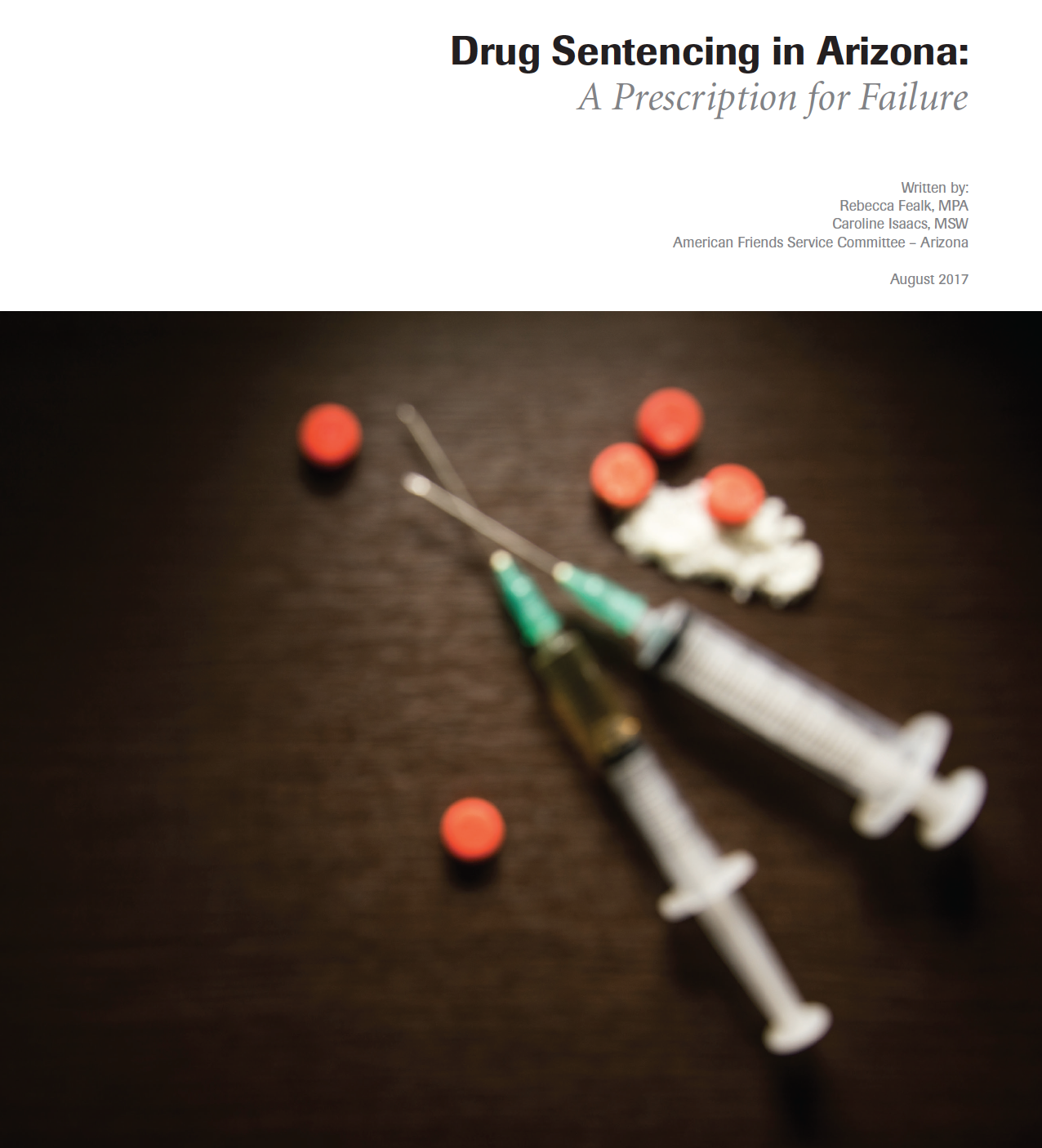For decades in Arizona, the response to drug use and addiction has been criminalization—steadily increasing penalties or adding charges for a range of addiction-related behaviors. Characterizing drug addiction as a moral failure and deliberate choice to break the law, Arizona sends people to prison for years for small amounts of drugs. In fact. 21.8% of people in Arizona prisons are in for drug crimes. Even more alarming is that 77% of people are assessed by the Arizona Department of Corrections as having a significant substance abuse history, meaning drug use likely contributed to their criminal activities.
In spite of the skyrocketing costs of incarceration, and legitimate concerns about public safety, Arizona currently does not collect aggregate data on how the state’s criminal sentencing laws are applied. Each county maintains its own records, collects different sets of data, and some jurisdictions have electronic systems while others are still using paper files. Thus, our lawmakers and the taxpayers footing the bill have no idea how many people were sentenced under a given law, for how long, or what the outcomes were.
To fill this gap, AFSC Arizona, in collaboration with the Public Welfare Foundation, has conducted a ground-breaking study of actual drug sentencing in Arizona. For the first time, court-level data was gathered on drug arrests, prosecutions, and sentencing practices in Arizona. The findings are shocking:

- Currently, any amount of drugs, even residue, can result in a charge of “possession.”
- Statewide, drug arrests comprised 11.73% of all arrests in 2015.
- Drug cases represent the overwhelming majority of charges filed in Maricopa County, with 45.32% of the charges filed for drug possession.
- There are significant racial disparities in drug sentencing and incarceration in Arizona. Black people are sentenced to 25% longer sentences for drug crimes.
- Arizona is spending a staggering $588,655 per day to incarcerate people whose most serious charge is a drug offense.
- Less than 3% of the state prisoners identified as having “significant substance abuse histories” are receiving drug treatment at any given time.
Read the full report here, to understand the need to reform drug laws in Arizona and adopt a Justice Reinvestment Approach to address the disease of addiction with effective methods for treatment.
Categories: Blog, News & Updates, Press Release, Sentencing